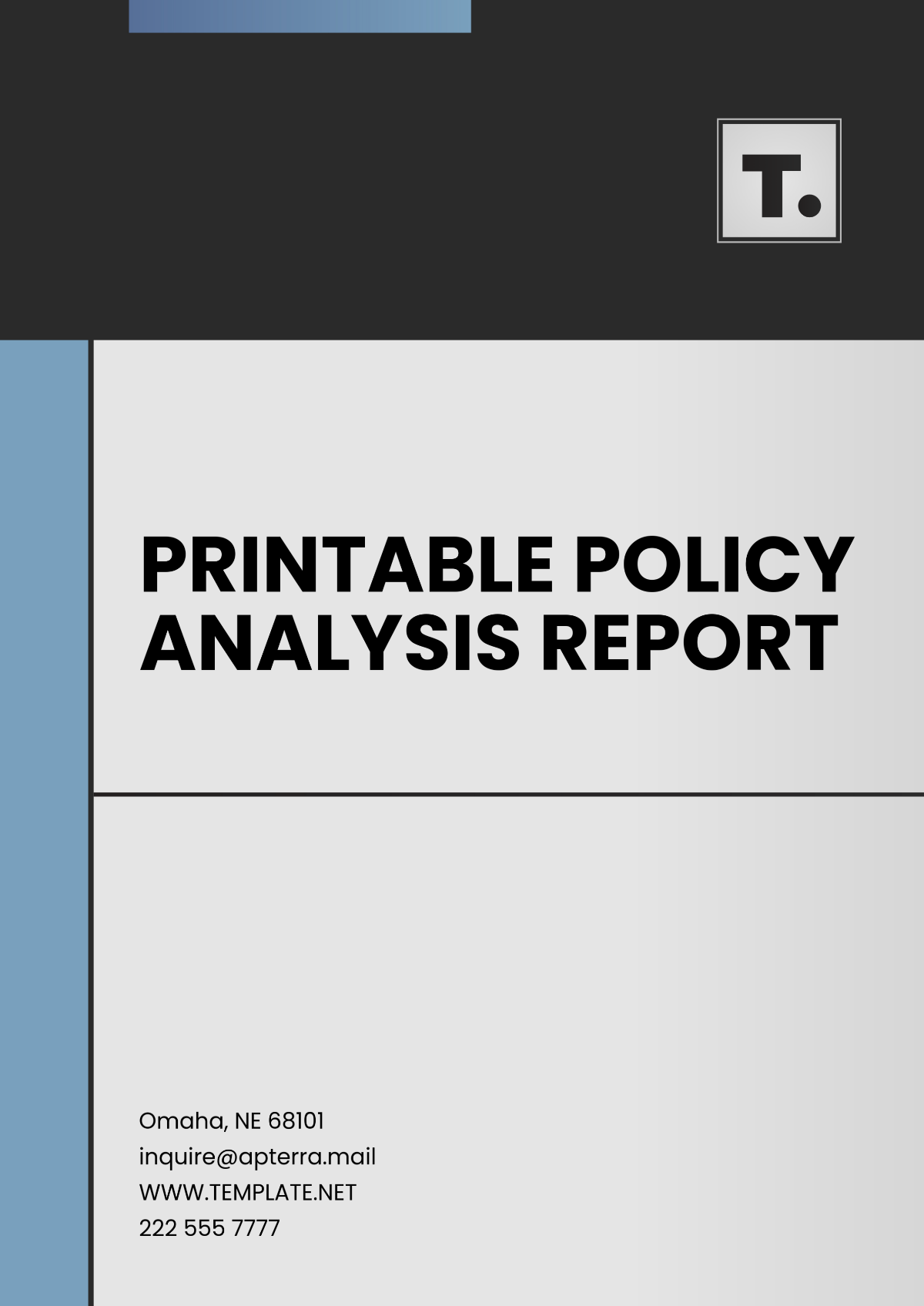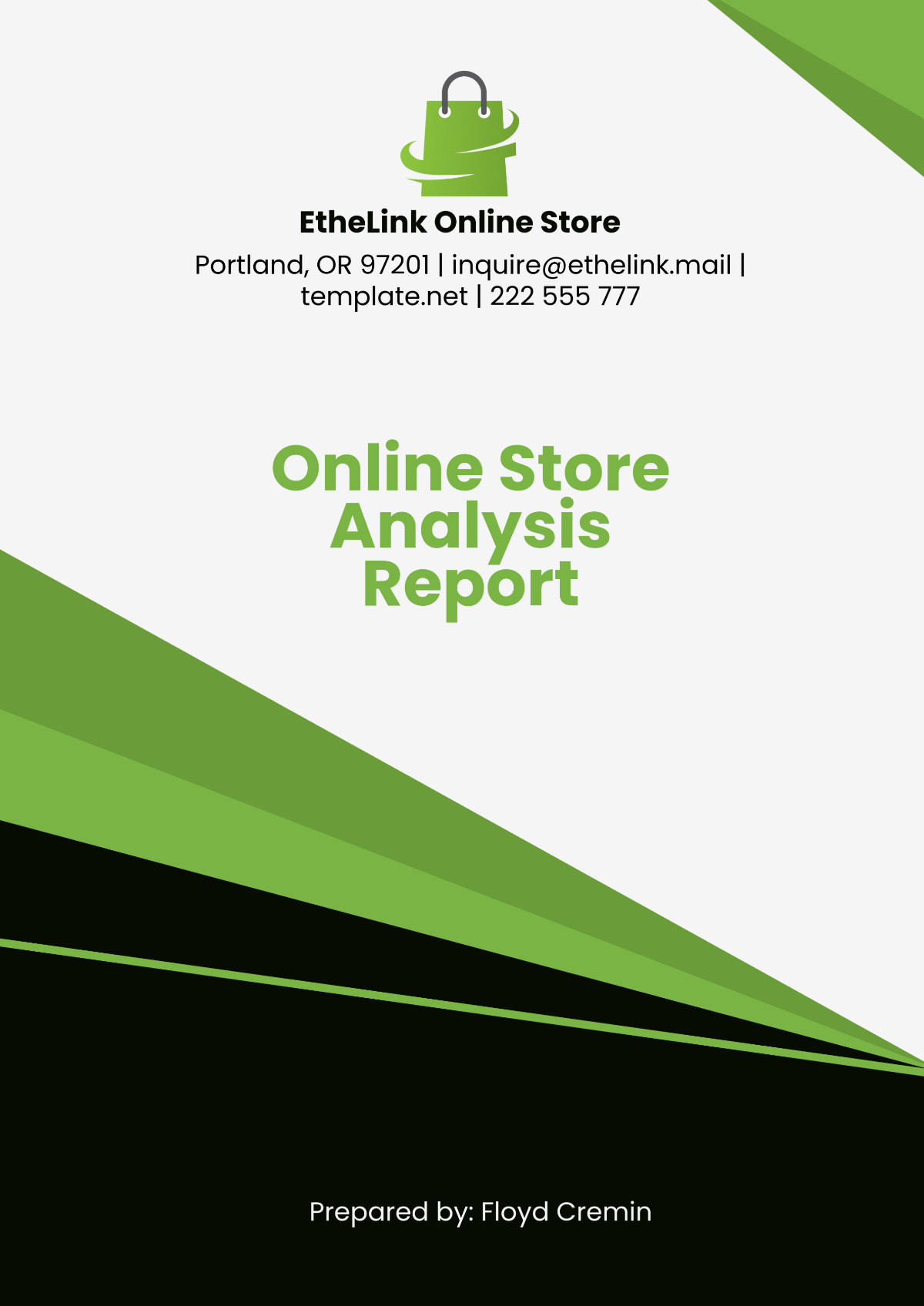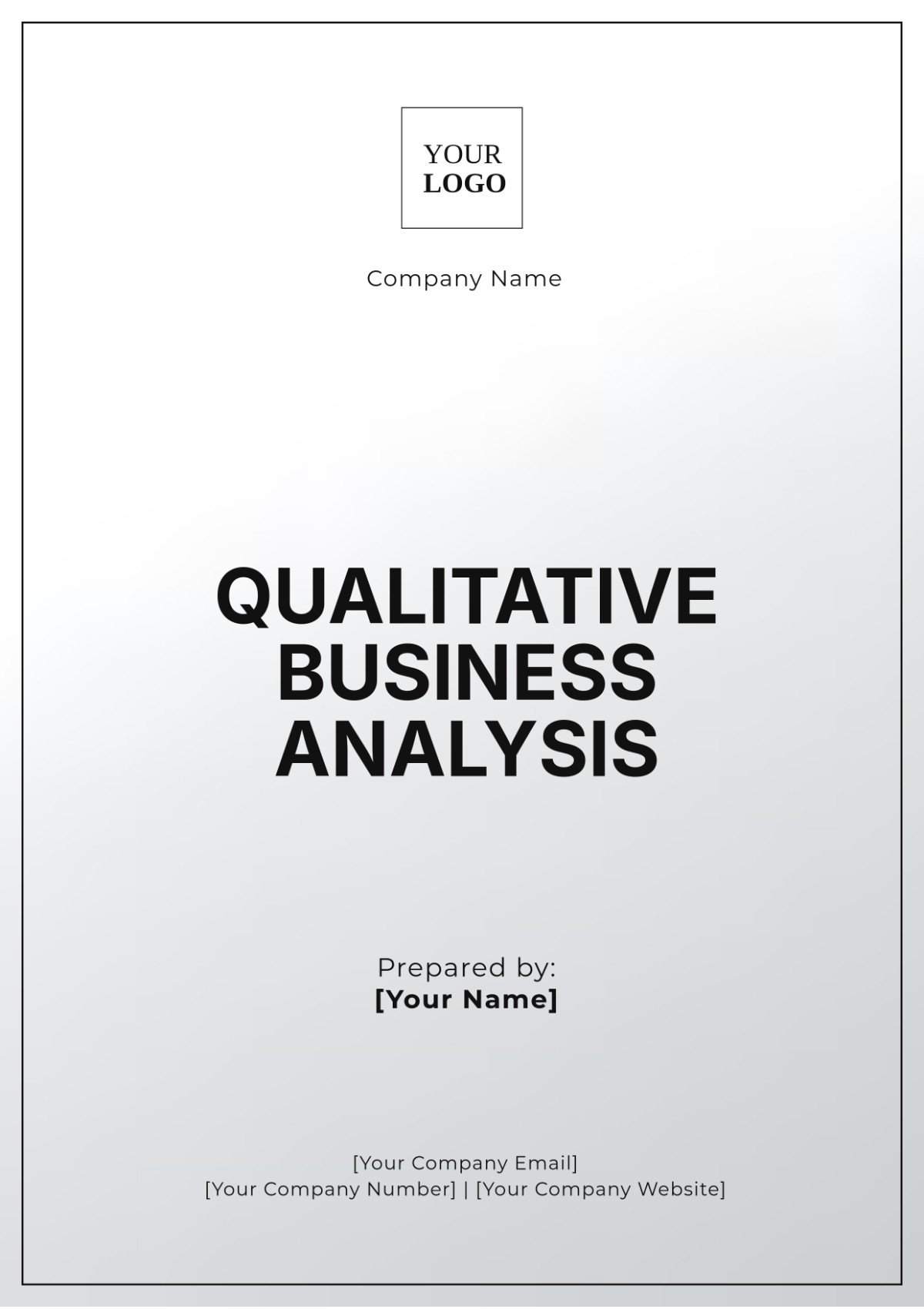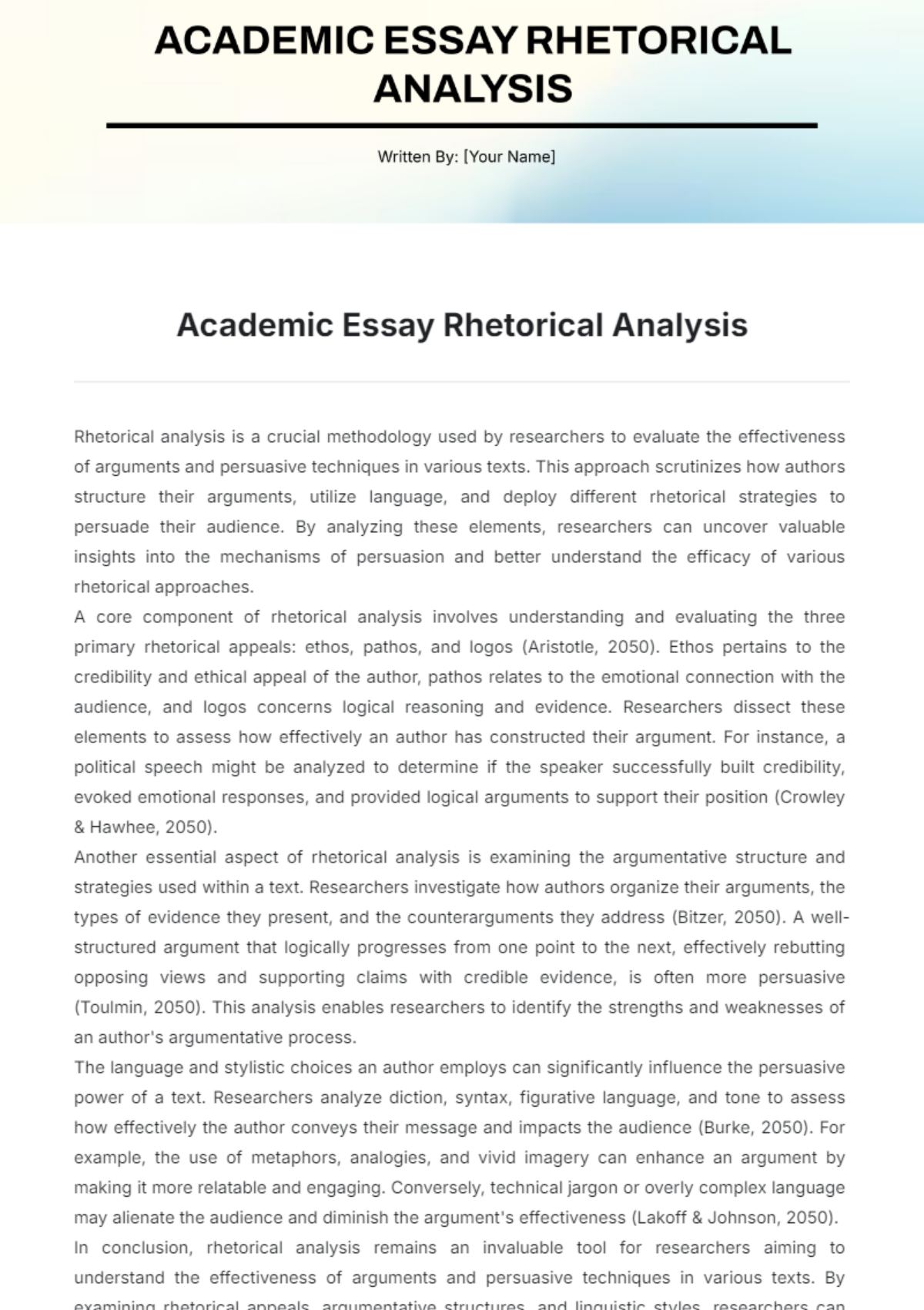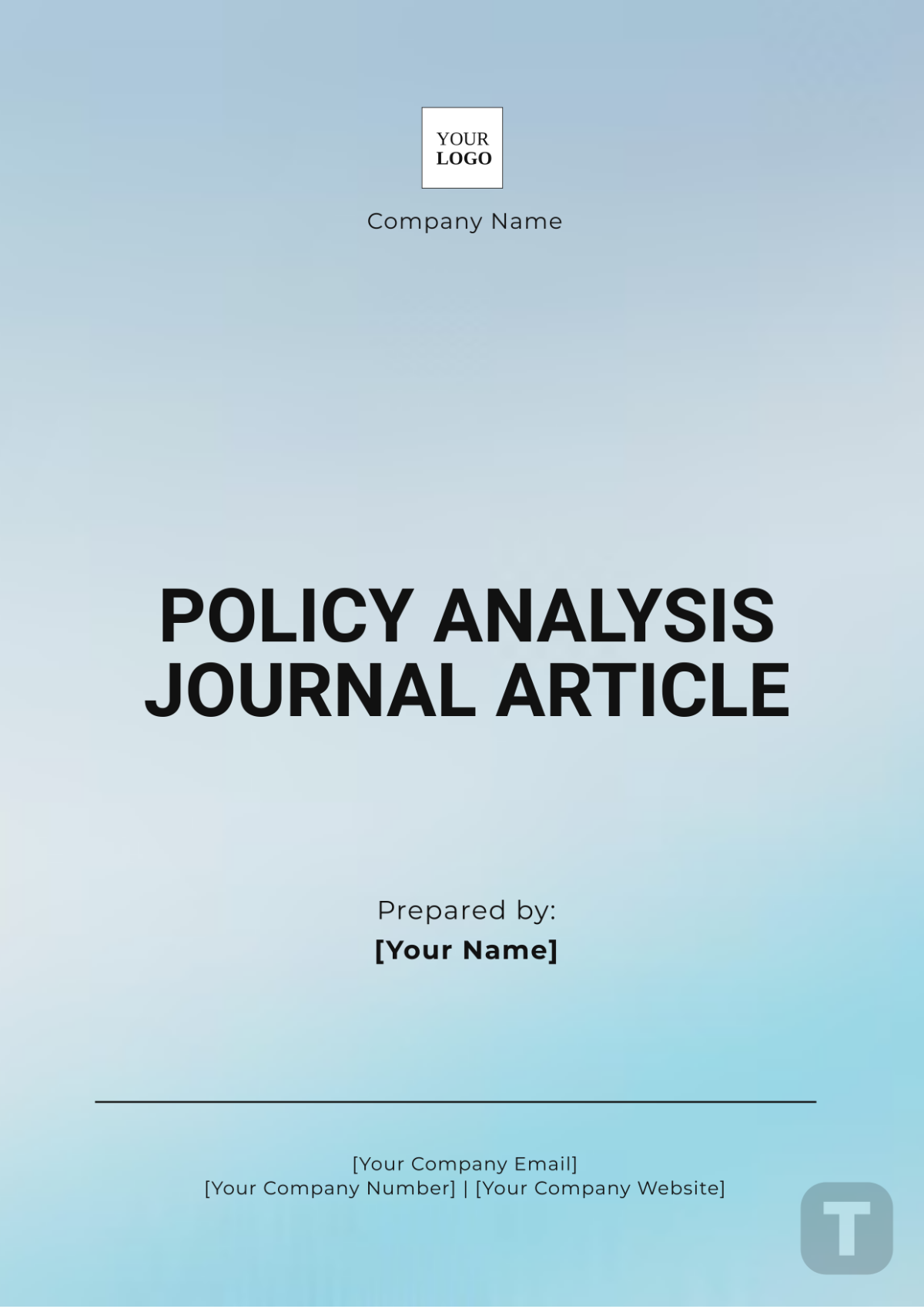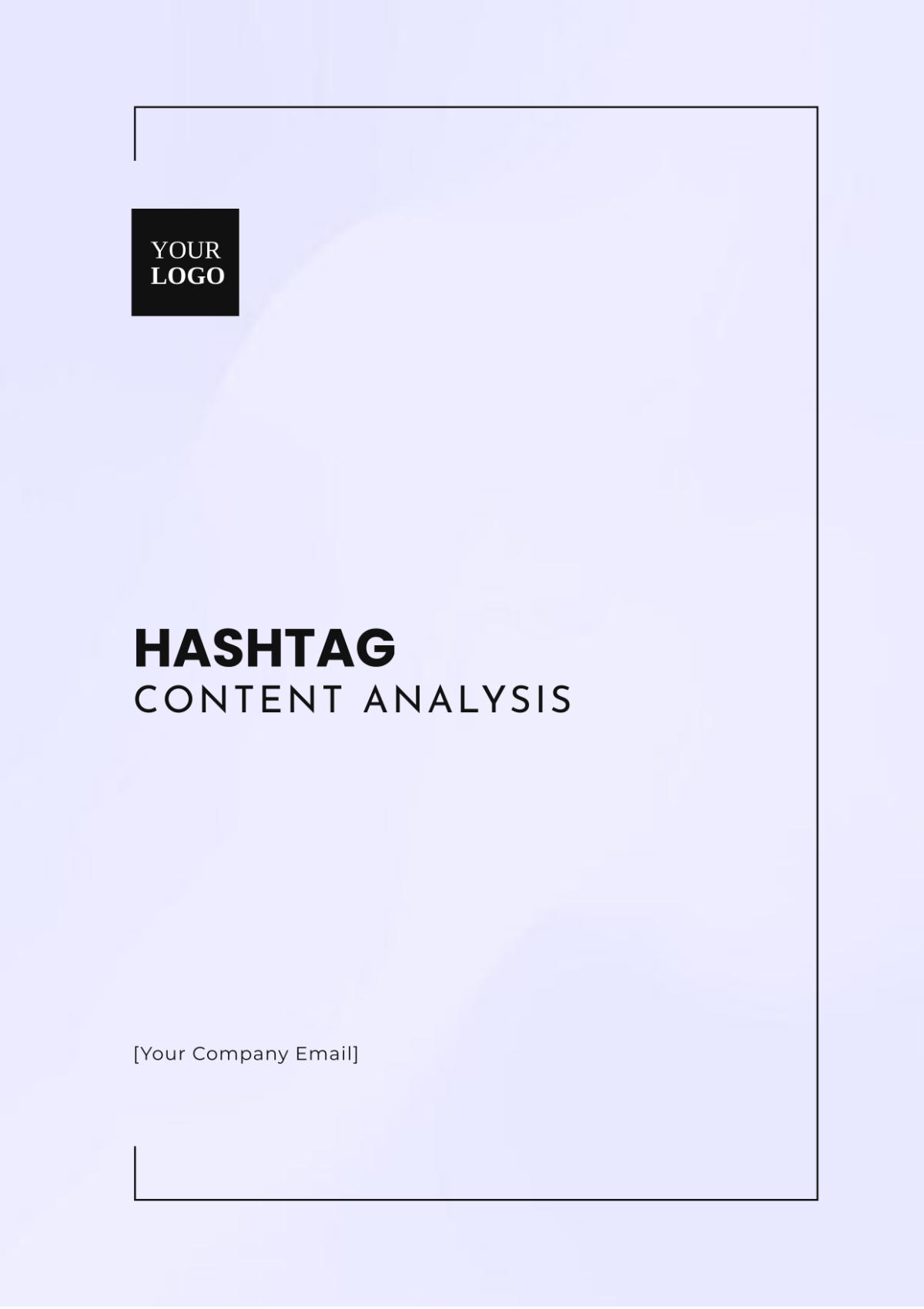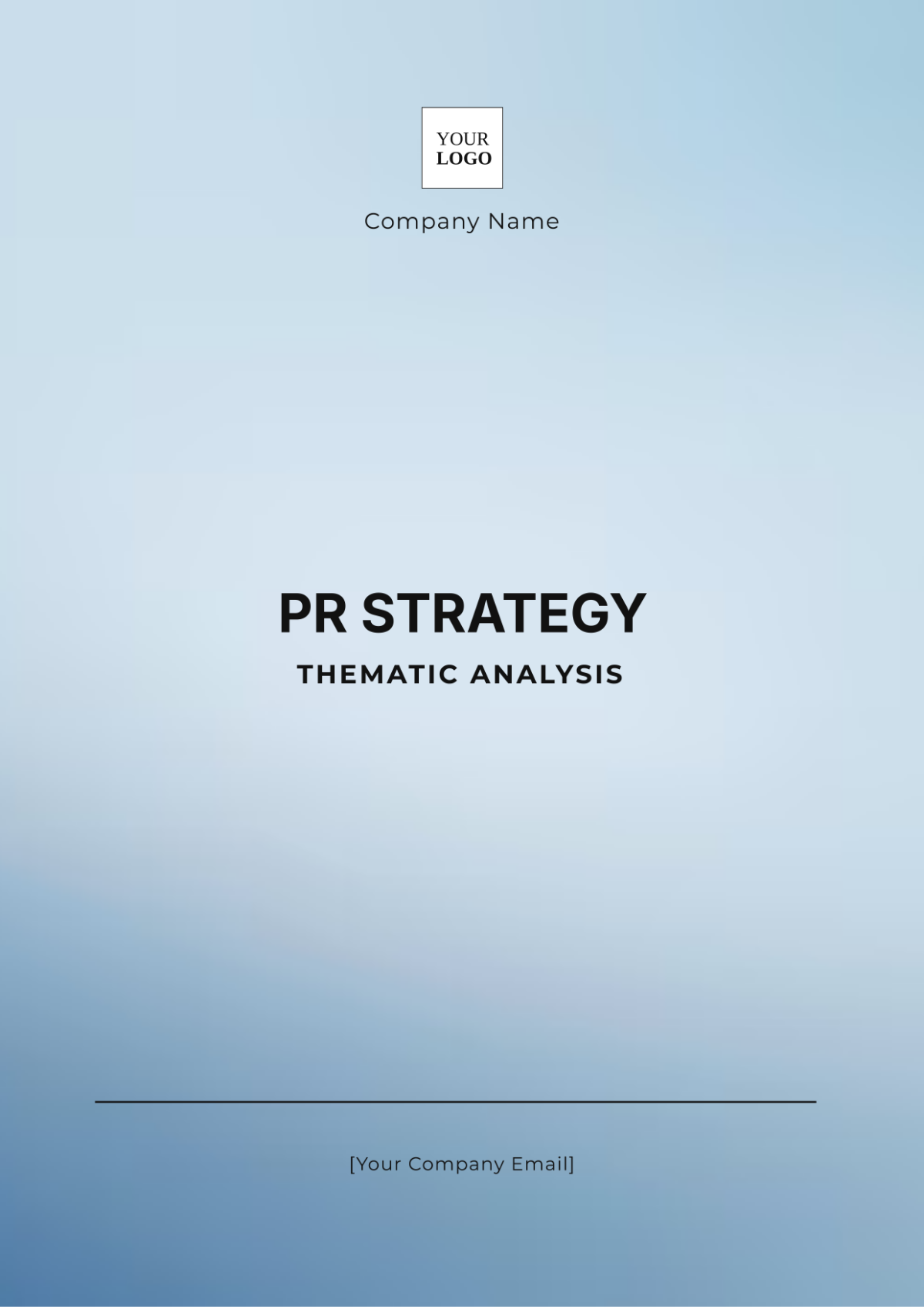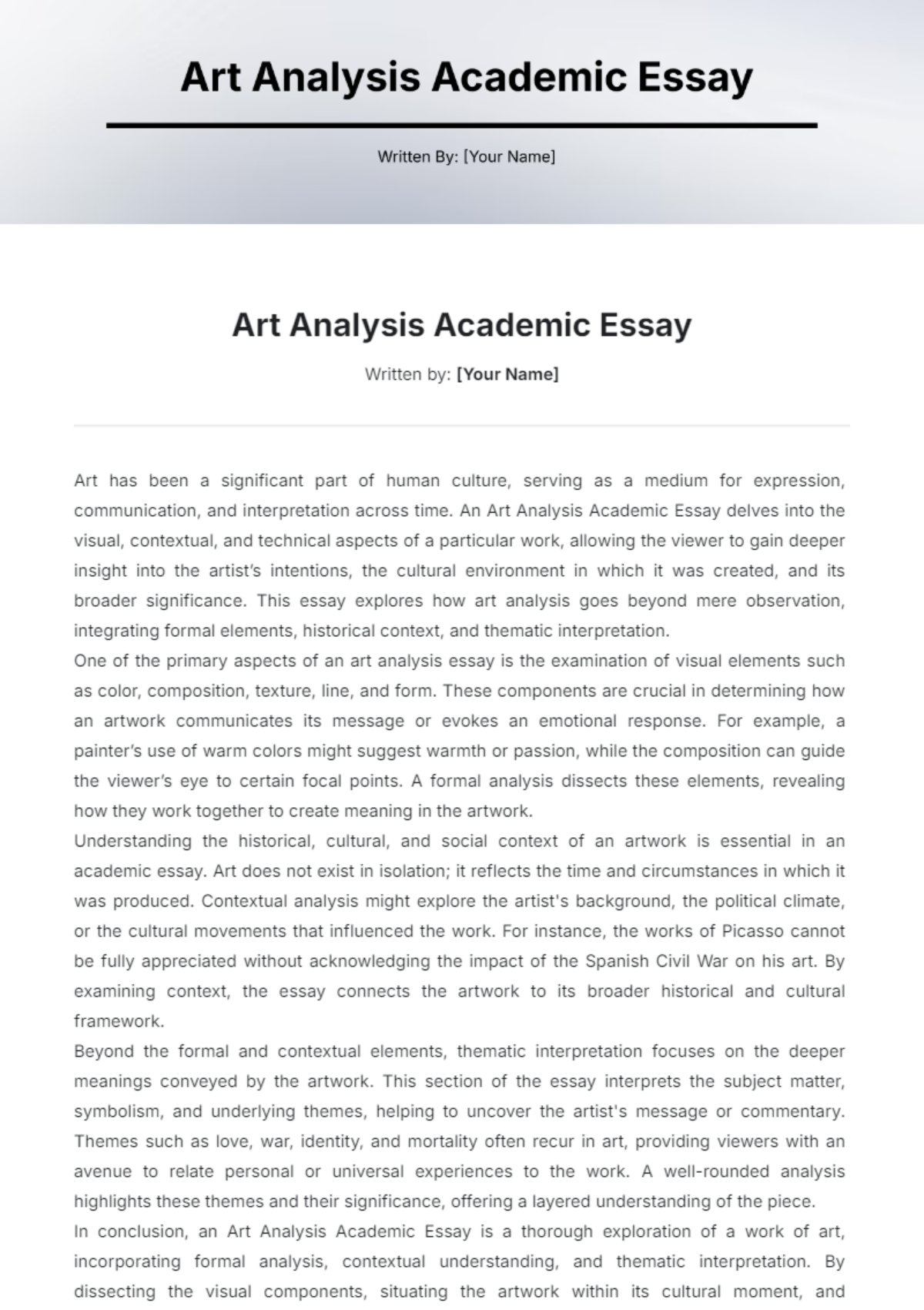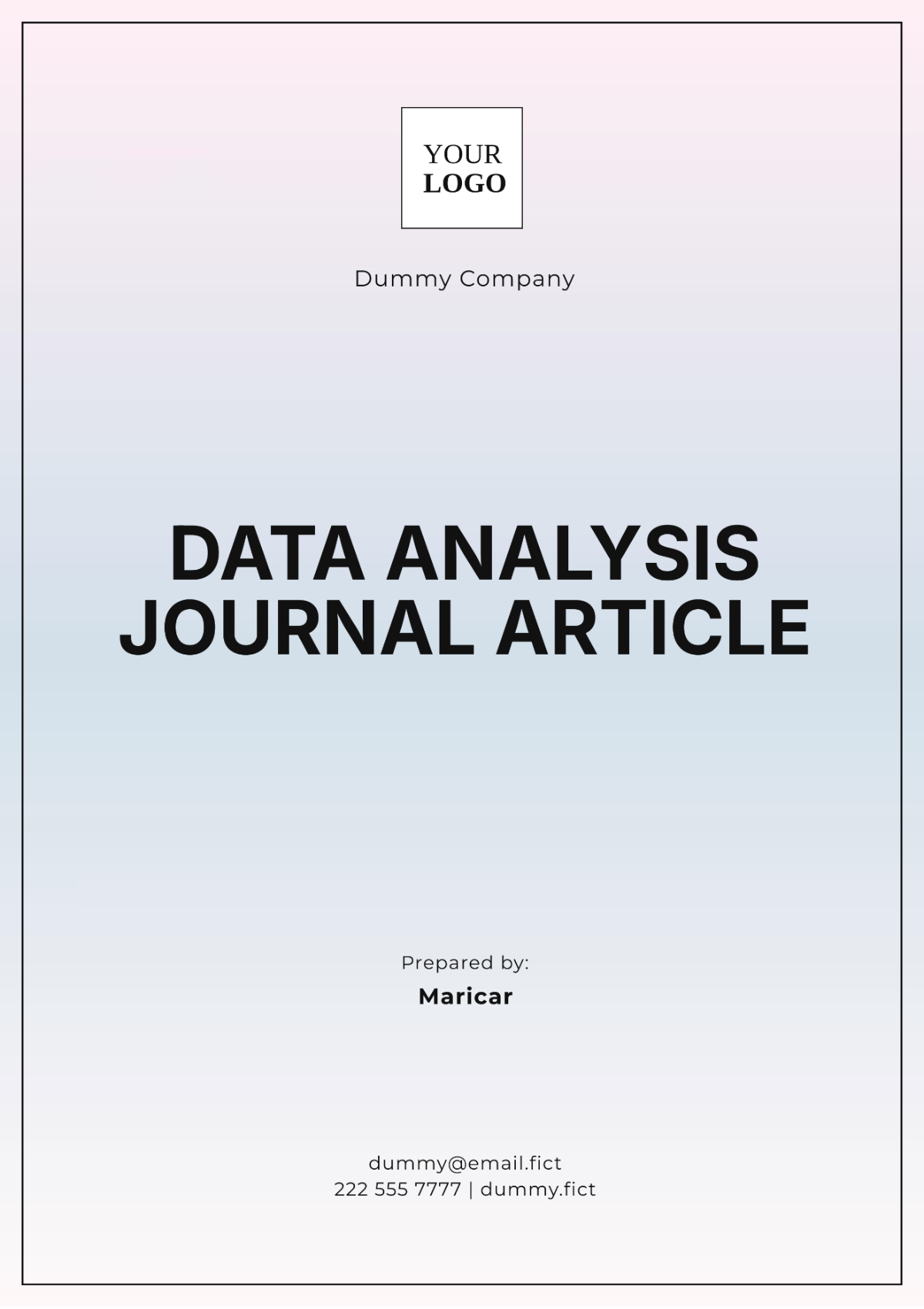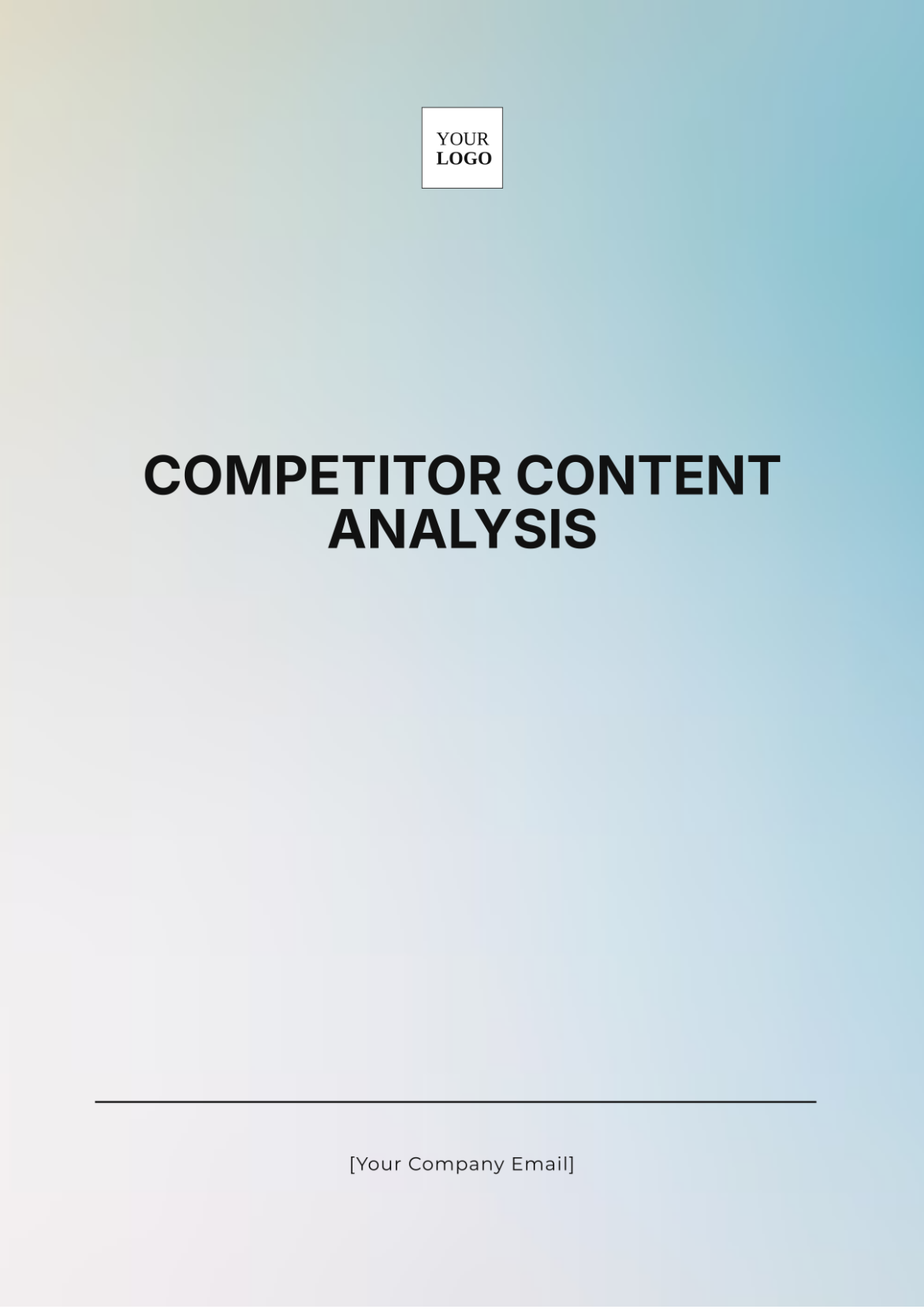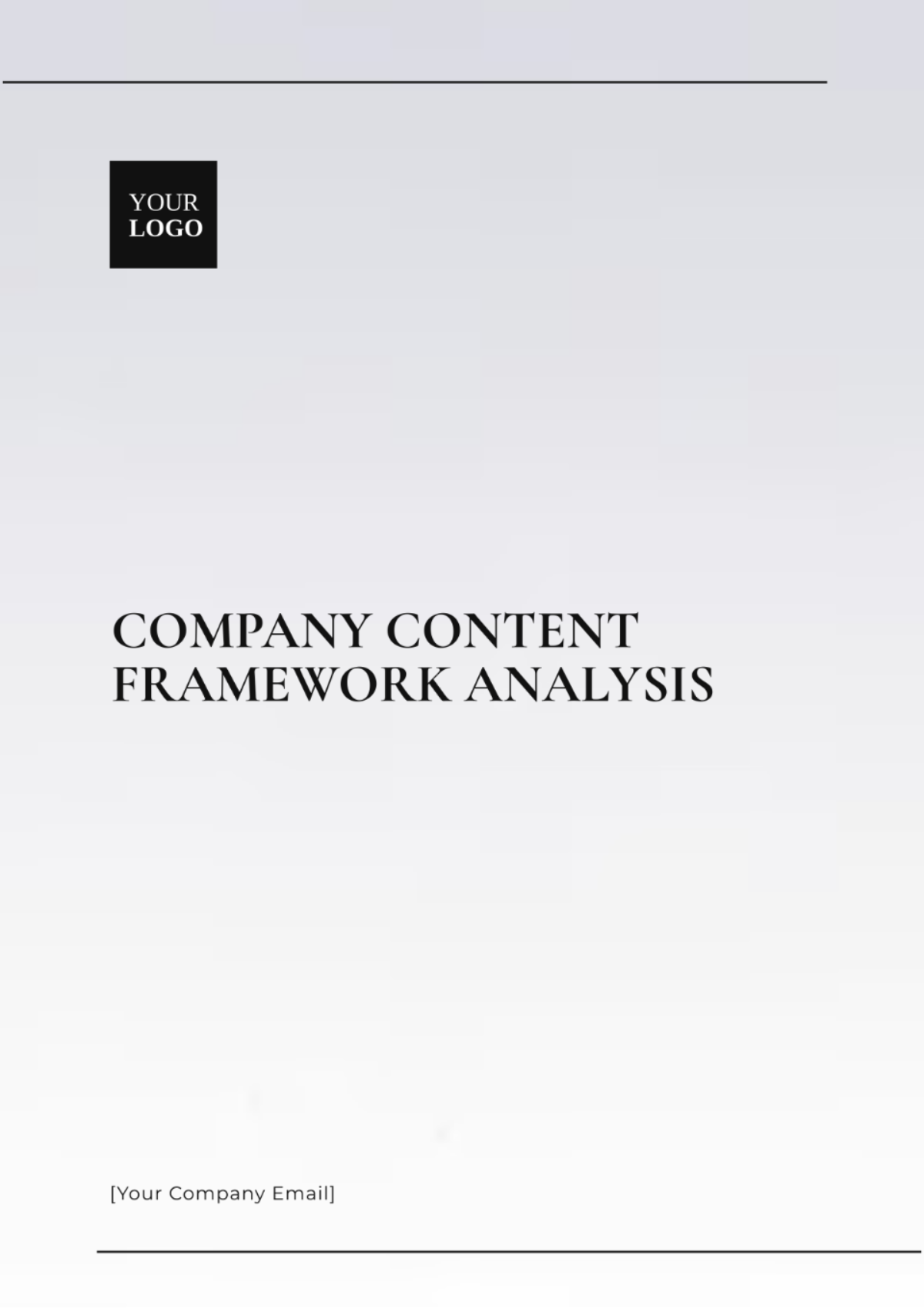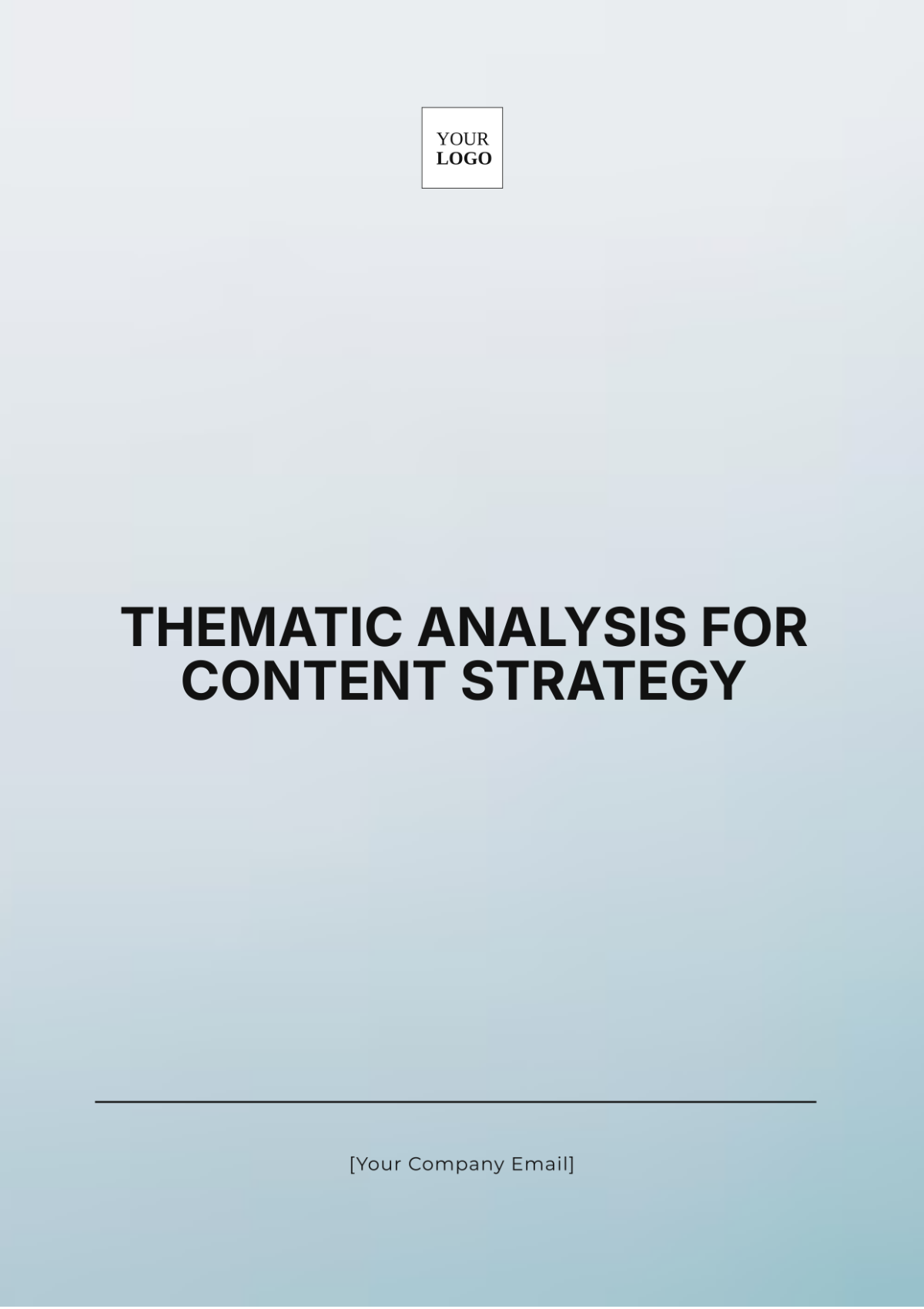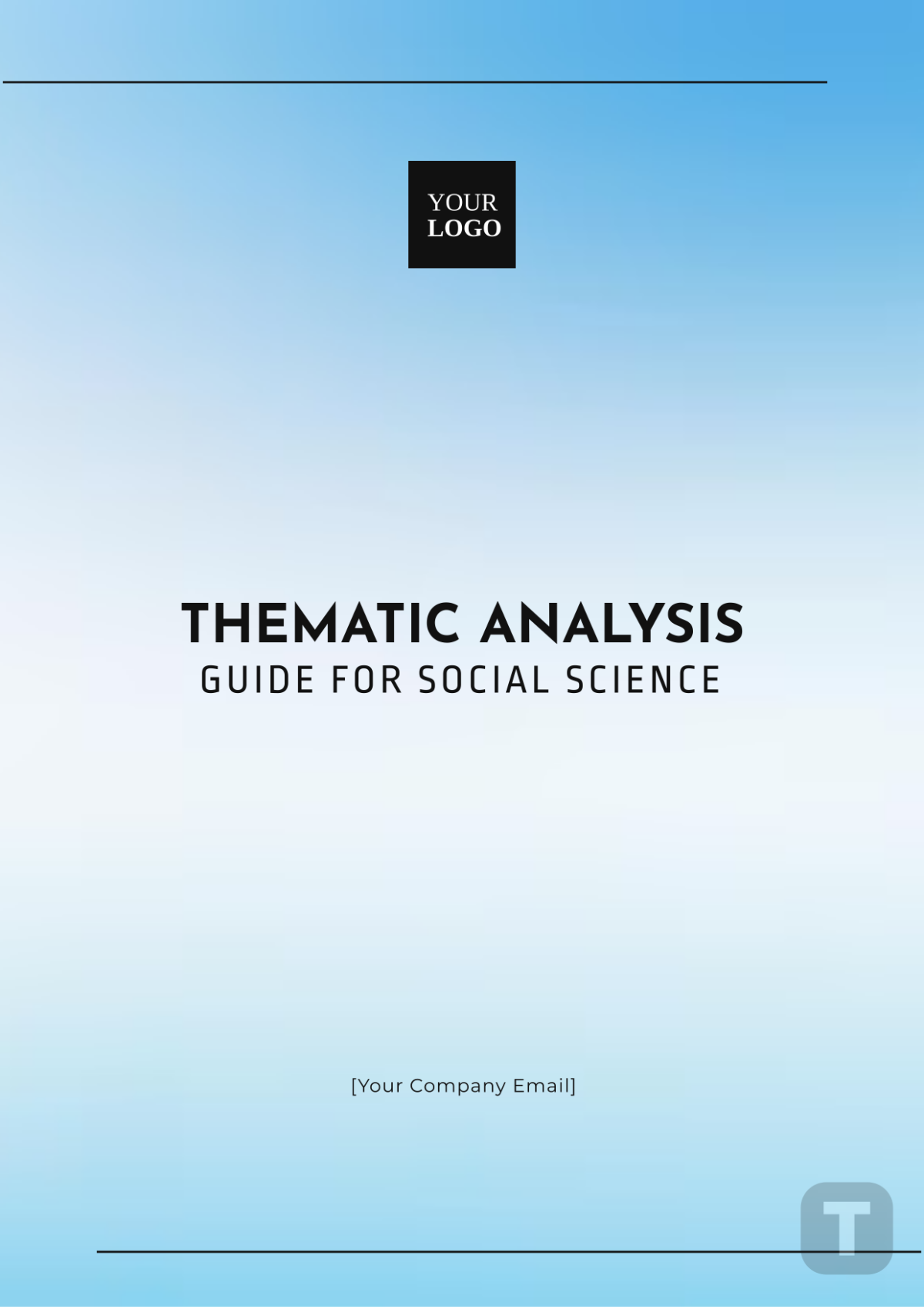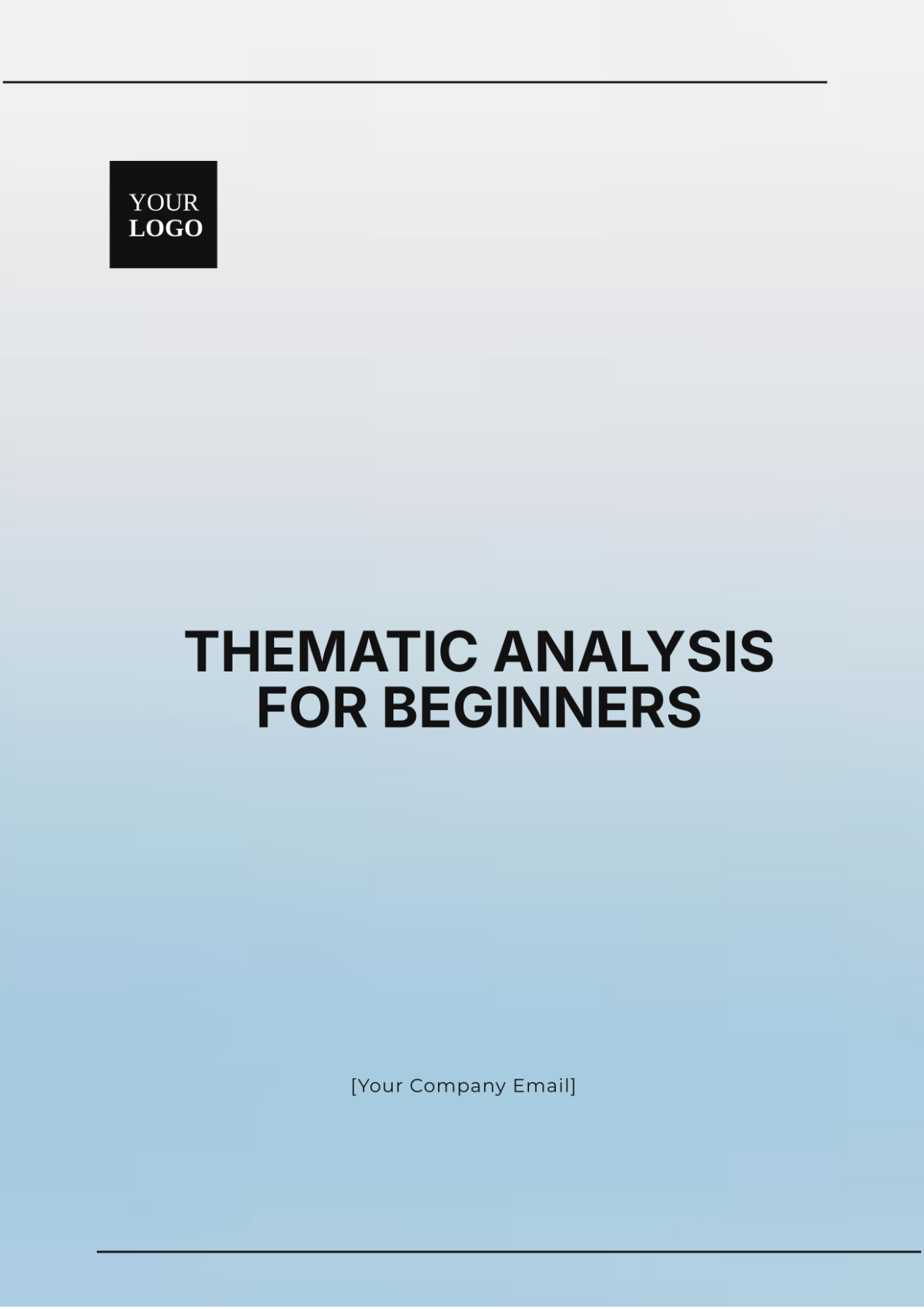MARKETING COMPETITIVE ANALYSIS
Prepared by: [YOUR COMPANY NAME]
Email: [YOUR COMPANY EMAIL]
Address: [YOUR COMPANY ADDRESS]
Phone: [YOUR COMPANY NUMBER]
Website: [YOUR COMPANY WEBSITE]
I. Executive Summary
This Marketing Competitive Analysis Report provides an in-depth examination of the competitive landscape within our industry, identifying key competitors, their strategies, strengths, and weaknesses. The objective is to optimize [YOUR COMPANY NAME]'s market position through actionable insights that will inform strategic marketing decisions and product enhancements.
II. Competitive Landscape
In this section, we categorize competitors based on their market share, relevance, and competitive impact:
Primary Competitors: Microsoft, Google, and Salesforce - they offer comprehensive software suites targeting small businesses.
Secondary Competitors: QuickBooks and Zoho - they focus on specific aspects like accounting and CRM.
III. Analysis of Competitor Products
A. Competitor Product Overview
Product | Description |
|---|---|
Microsoft 365 Business | Integrated suite including productivity tools, collaboration features, and cloud storage |
Google Workspace | Cloud-based productivity suite featuring email, document creation, and collaboration tools |
Salesforce Essentials | CRM software designed specifically for small businesses, offering sales and customer support features |
B. Pricing Strategy Assessment
Product | Pricing Model |
|---|---|
Microsoft 365 Business | Tiered subscription plans based on features and user count |
Google Workspace | Monthly per-user pricing with different plans for various business sizes |
Salesforce Essentials | A monthly subscription based on user count, with additional costs for advanced features |
IV. Marketing Strategies
A. Advertising and Promotion
Digital Media: Competitors utilize targeted online ads, social media campaigns, and email marketing.
Traditional Media: Some competitors invest in TV commercials and print ads targeting small business owners.
Out-of-Home Advertising: Limited use of billboards and local event sponsorships.
B. Promotional Tactics
Seasonal Sales: Offers during major holidays and business milestones.
Cross-Promotions: Bundled services or discounts for using multiple products within their ecosystem.
Loyalty Programs: Rewards for long-term customers and referrals.
V. SWOT Analysis
This section provides a detailed SWOT (Strengths, Weaknesses, Opportunities, Threats) analysis of the competition relative to [YOUR COMPANY NAME].
Strengths
Established brand recognition and trust.
Robust suite of software solutions.
Strong customer support and training resources.
Weaknesses
Higher pricing compared to some competitors.
Limited customization options for certain products.
Dependency on cloud infrastructure for services.
Opportunities
Expanding into emerging markets and industries.
Developing partnerships with complementary software providers.
Offering more scalable solutions for growing businesses.
Threats
Intense competition from established and emerging players.
Rapid technological advancements affecting product relevance.
Regulatory changes impacting data privacy and security.
VI. Strategic Recommendations
Based on the analysis, [YOUR COMPANY NAME]'s should consider the following strategic actions:
Enhance Digital Marketing Efforts: Targeted online campaigns to reach small business owners.
Diversify Product Offerings: Develop add-ons or integrations to enhance existing software suites.
Improve Customer Engagement Strategies: Offer personalized support and training programs for clients.
VII. Conclusion
This Marketing Competitive Analysis equips [YOUR COMPANY NAME]with crucial insights into the competitive landscape of the software solutions market for small businesses. By implementing the strategic recommendations outlined in this report, [YOUR COMPANY NAME] aims to strengthen its market position, enhance customer satisfaction, and drive growth in the industry.


